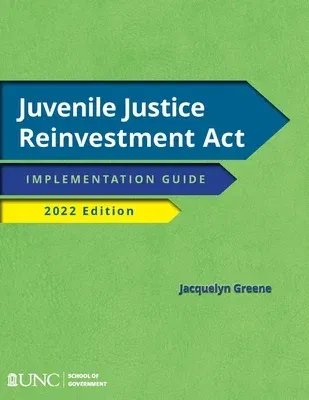Jacquelyn Greene
(Author)Juvenile Justice Reinvestment Act: Implementation Guide, 2022 EditionPaperback, 1 May 2022

Qty
1
Turbo
Ships in 2 - 3 days
In Stock
Free Delivery
Cash on Delivery
15 Days
Free Returns
Secure Checkout

Print Length
160 pages
Language
English
Publisher
Unc School of Government
Date Published
1 May 2022
ISBN-10
1642380482
ISBN-13
9781642380484
Description
Product Details
Author:
Book Format:
Paperback
Country of Origin:
US
Date Published:
1 May 2022
Dimensions:
27.69 x
21.34 x
1.04 cm
ISBN-10:
1642380482
ISBN-13:
9781642380484
Language:
English
Location:
Chapel Hill
Pages:
160
Publisher:
Weight:
449.06 gm